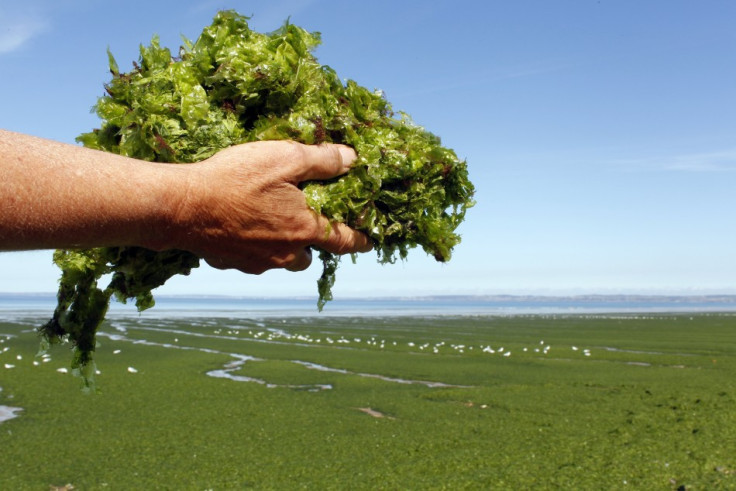Toxic 'sea lettuce' fumes may have caused French jogger's death in Brittany
Deadly vapours may have killed a runner sparking a major health warning in British coastal areas.

A jogger in France may have died after being overcome by fumes emitting from so-called 'sea lettuce', sparking fears of a similar danger across the water in Jersey.
The runner, who was found dead on a Brittany beach, may have died after being consumed by fumes similar to those found in St Aubin's Bay.
The New Jersey Evening Post reported that nine experts, including four toxicologists, have drawn a link between a build-up of sea lettuce, also known as Ulva lactuca, and the death.
The green algae can produce hydrogen sulphide when trapped under a seaweed which has, in the past, killed wild animals.
According to the report the experts have challenged the findings of St Brieuc's public prosecutor's office, which said in December last year that gas poisoning could not be ruled out in the case. As of yet the cause of death has not been established.
An autopsy report and histology results, which involved the examination of the deceased's cells and tissue, may reveal more clues to the cause of death, say the scientists.
It has been reported that decomposing sea lettuce has caused the deaths of wild animals including several wild boars in 2011 and a horse in 2009 in the country.
Across the water in the Channel Islands a similar type of seaweed builds up every year, causing noxious smells around the islands. The annual build-up of seaweed can be removed at the request of the Environmental Health Department if it is deemed to be a risk.
The department's director Stewart Petrie said that the agency does test for hydrogen sulphide but confirmed that during recent tests there had not been sufficient levels of the gas to register on equipment.
Petrie said according to the Mirror: "During certain periods on certain beaches there is a licence to remove seaweed of any type to the high water mark, and that's carried out by the Infrastructure Department on behalf of the states.
"Above that, if I feel there is a risk to public health - either because of accumulation being so big or because somebody is diving into the seaweed - there's a protocol to request additional measures for seaweed to be removed on public health grounds.
"If the build-up was getting towards that kind of level, which is unlikely, we would have it moved."
© Copyright IBTimes 2025. All rights reserved.




















